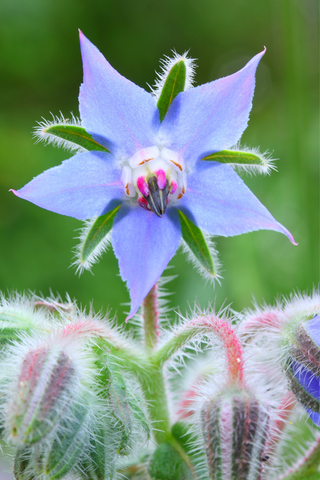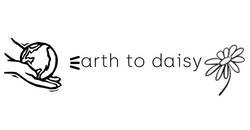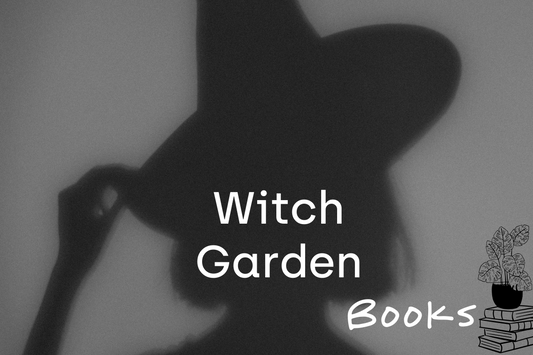Why Start A Medicinal Garden?
Why not get your hands dirty? You can just wash it off.
Imagine being able to make your own medicine from plants you've grown. Knowledge is power, and so is calming, soothing lavender. Dandelions are medicinal, and so are thistles. By embracing the ancient wisdom of medicinal gardening, you open the secret door to a world of self-sufficiency.
You can do hard things. You can use plants and food for medicine. You can make your own salad dressing. Oh, whoops. Wrong blog.
Starting a medicinal garden is like having your own personal outdoor classroom where you can learn from nature and experience the healing power of plants.
Let's just try it.
What are 25 Plants For A Medical Garden?

25. Nasturtium
(Tropaeolum majus)
They Say its good for:
-
antimicrobial
-
immune-boosting
-
respiratory tonic
Type of Prep:
- Antimicrobial, make a tincture
- Eat the flowers & leaves
Tad about safety:
- pregnancy / breastfeeding
- Caution to gather more info for yourself
Commonly Mentioned Dosage:
24. Peony
(Paeonia lactiflora)
They Say its good for:
-
anti-inflammatory
-
antispasmodic
-
analgesic
Type of Prep:
- tinctures
- decoctions made from dried roots
Tad about safety:
- pregnancy / breastfeeding
- Caution to gather more info for yourself
- May interact with certain medications
Commonly Mentioned Dosage:
Follow instructions on commercially prepared Peony products or consult an herbalist

23. Sage
(Salvia officinalis)
They Say its good for:
-
antimicrobial
-
astringent
-
digestive aid
Type of Prep:
- essential oils made from dried leaves
- tinctures
- teas
Tad about safety:
- pregnancy / breastfeeding
- Caution to gather more info for yourself
- May interact with certain medications
Commonly Mentioned Dosage:
1-2 cups of tea per day or as directed by an herbalist


22. Vervain
(Verbena officinalis)
They Say its good for:
-
nervine
-
antispasmodic
-
digestive aide
Type of Prep:
- Teas or tinctures made from dried aerial parts
Tad about safety:
- pregnancy / breastfeeding
- Caution to gather more info for yourself
- May interact with certain medications
Commonly Mentioned Dosage:
Follow instructions on commercially prepared Verbena/Verbain products or consult an herbalist
21. Marshmallow
(Althaea officinalis)
They Say its good for:
-
soothing
-
demulcent
-
anti-inflammatory
Type of Prep:
- infusions
- Tinctures made from dried flowers, leaves, and roots
Tad about safety:
- generally considered safe
- diabetes or taking other medications
- Caution to gather more info for yourself
- May interact with certain medications
Commonly Mentioned Dosage:
Follow instructions on commercially prepared Althaea products or consult an herbalist
20. Borage
(Borago officinalis)

They Say Borage is good for:
-
nervine
-
diuretic
-
anti-inflammatory
Type of Prep:
- infusions
- tinctures made from dried flowers & leaves
Tad about safety:
- pregnancy / breastfeeding
- Caution to gather more info for yourself
- May interact with certain medications
Commonly Mentioned Dosage:
Follow instructions on commercially prepared Borage products or consult an herbalist
19. Hops
(humulus lupulus)

They Say Hops is good for:
-
calming
-
sleep-inducing
-
anti-spasmodic
Type of Prep:
- tinctures
- teas
- Capsules made from dried flowers
Tad about safety:
- pregnancy / breastfeeding
- Caution to gather more info for yourself
- may cause drowsiness
Follow instructions on commercially prepared Hops products or consult an herbalist
18. Comfrey
(Symphytum officinale)
They Say Comfrey is good for:
-
wound-healing
-
demulcent
-
anti-inflammatory

Type of Prep:
- infusions
- Tinctures made from dried flowers, leaves, and roots
Tad about safety:
- do not use on broken skin or open wounds
- avoid internal use due to potential liver toxicity
Commonly Mentioned Dosage:
Follow instructions on commercially prepared Comfrey products or consult an herbalist
17. Yarrow
(Achillea millifolium)

They Say Yarrow is good for:
-
astringent
-
anti-inflammatory
-
wound healing
Type of Prep:
- tinctures
- infusions
- poultices made from dried aerial parts
Tad about safety:
- avoid during pregnancy / breastfeeding
Commonly Mentioned Dosage:
Follow instructions on commercially prepared Yarrow products or consult an herbalist
16. Feverfew
(Tanacetum parthenium)
They Say Feverfew is good for:
-
antimigraine
-
anti-inflammatory
-
antispasmodic
Type of Prep:
- tinctures or teas made from dried flowers and leaves
Tad about safety:
- avoid during pregnancy / breastfeeding
- may cause mouth irritation in some people
Commonly Mentioned Dosage:
Follow instructions on commercially prepared Feverfew products or consult an herbalist
15. Skullcap
(Scutellaria lateriflora)
They Say Skullcap is good for:
-
calming
-
antispasmodic
-
nervine
Type of Prep:
- tinctures or teas made from dried aerial parts
Tad about safety:
- use with caution during pregnancy / breastfeeding
- may cause drowsiness
Commonly Mentioned Dosage:
Follow instructions on commercially prepared Skullcap products or consult an herbalist
14. Lemon Balm
(Melissa officinalis)
They Say Lemon Balm is good for:
-
calming
-
antiviral
-
digestive aid
Type of Prep:
- tinctures
- teas
- essential oils made from dried leaves
Tad about safety:
- generally considered safe
- use with caution if you have thyroid disorders
Commonly Mentioned Dosage:
1-2 Cups of tea per day or as directed by an herbalist
13. Passionflower
(Passiflora incarnata)
They Say Passionflower is good for:
-
calming
-
antispasmodic
-
sleep-inducing

Type of Prep:
- tinctures or teas made from dried flowers and leaves
Tad about safety:
- use with caution during pregnancy / breastfeeding
- may interact with certain medications
Commonly Mentioned Dosage:
Follow instructions on commercially prepared Passionflower products or consult an herbalist
12. Rose
(Rosa spp.)
They Say Rose is good for:
-
astringent
-
anti-inflammatory
-
heart tonic
Type of Prep:
- teas, tinctures, or syrups made from dried aerial parts
Tad about safety:
- generally considered safe
- avoid during pregnancy / breastfeeding
Commonly Mentioned Dosage:
Follow instructions on commercially prepared Rose products or consult an herbalist
11. Red Clover
(Trifolium pratense)
They Say Red Clover is good for:
-
hormone-balancing
-
expectorant
-
blood purifier

Type of Prep:
- teas, tinctures, or capsules made from dried flowers
Tad about safety:
- use with caution during pregnancy / breastfeeding
- may interact with certain medications
Commonly Mentioned Dosage:
Follow instructions on commercially prepared Yarrow products or consult an herbalist

10. Mullein
(Verbascum thapsus)
They Say Mullein is good for:
-
respiratory tonic
-
anti-inflammatory
-
demulcent
Type of Prep:
- teas, tinctures, or syrups made from dried flowers and leaves
Tad about safety:
- generally considered safe
- strain teas to remove fine hairs
Commonly Mentioned Dosage:
Follow instructions on commercially prepared Mullein products or consult an herbalist
9. Arnica
(Arnica montana)
They Say Arnica is good for:
-
analgesic
-
anti-inflammatory
-
wound healing

Type of Prep:
- topical creams, gels, or salves made from dried flowers
Tad about safety:
- avoid during pregnancy / breastfeeding
- do not use on broken skin or open wounds
Commonly Mentioned Dosage:
Follow instructions on commercially prepared Arnica products or consult an herbalist
9. St. John's Wort
(Hypericum perforatum)
They Say St. John's Wort is good for:
-
antiviral
-
anti-depressant
-
wound healing
Type of Prep:
- teas, tinctures, or capsules made from dried flowers
Tad about safety:
- avoid during pregnancy / breastfeeding
- may cause photosensitivity
- may interact with certain medications
Commonly Mentioned Dosage:
Follow instructions on commercially prepared St. John's Wort products or consult an herbalist
Further reading: St. John's Wort on National Center for Complementary and Integrative Health
7. Valerian
(Valeriana Officinalis)
They Say Valerian is good for:
-
calming
-
antispasmodic
-
sleep-inducing

Type of Prep:
- topical creams, gels, or salves made from dried flowers
Tad about safety:
- avoid during pregnancy / breastfeeding
- do not use on broken skin or open wounds
Commonly Mentioned Dosage:
Follow instructions on commercially prepared Arnica products or consult an herbalist
Further reading:
A Randomized double-blind, placebo-controlled, crossover clinical trial on Valerian effects on sleep quality, depression, and state anxiety
6. Milk Thistle
(Silybum marianum)
They Say Milk Thistle is good for:
-
liver-protective
-
antioxidant
Type of Prep:
- capsules or tinctures made from dried seeds
Tad about safety:
- generally considered safe
- use with caution if you have allergies to plants in the Asteraceae family
Commonly Mentioned Dosage:
Follow instructions on commercially prepared Milk Thistle products or consult an herbalist
Further reading:
Milk thistle has been used for treating complications like jaundice, hepatitis and cancers for 2000 years. Here's a study on A review of therapeutic potentials of milk thistle and its many constituent, silymarin, on cancer, and their related patents.
5. Calendula
(Calendula officinalis)
They Say Calendula (marigold) is good for:
-
antimicrobial
-
anti-inflammatory
-
wound healing
Type of Prep:
- infusions, creams, or salves made from dried flowers
Tad about safety:
- generally considered safe
- avoid if allergic to plants in the Asteraceae family
- application in children under 6 is not recommended
Commonly Mentioned Dosage:
Follow instructions on commercially prepared Calendula products or consult an herbalist
Further reading:
Calendula & others in this study of Medicinal Plants used in treatment of inflammatory skin diseases on National Library of Medicine
Calendula overview on Mount Sinai.
4. Chamomile
(Matricaria chamomilla)
They Say Red Clover is good for:
-
antispasmodic
-
anti-inflammatory
-
calming
Type of Prep:
- teas or tinctures made from dried flowers
Tad about safety:
- use with caution during pregnancy / breastfeeding
- avoid if allergic to plants in the Asteraceae family
Commonly Mentioned Dosage:
Follow instructions on commercially prepared Yarrow products or consult an herbalist
Further Reading:
An Overview on Matricaria chamomilla on National Library of Medicine
"Maricaria recutita is the most known and commonly used medicinal plant." Read about it & others in this study of Medicinal Plants used in treatment of inflammatory skin diseases on National Library of Medicine

3. Dandelion
(Taraxacum officinale)
They Say Dandelion is good for:
-
diuretic
-
liver tonic
-
digestive aide
Type of Prep:
- teas, tinctures, or capsules made from dried flowers, leaves and roots
Tad about safety:
- generally considered safe
- use with caution if allergic to plants in the Asteraceae family
Commonly Mentioned Dosage:
Follow instructions on commercially prepared Yarrow products or consult an herbalist
Further reading: A study on The Physiological Effects of Dandelion in Type 2 Diabetes
2. Echinacea
(Echinacea purpurea)
They Say Echinacea is good for:
-
immune-boosting
-
antiviral
Type of Prep:
- teas, tinctures, or capsules made from aerial parts and roots

Tad about safety precautions with using Echinacea as medicine:
- use with caution if you have autoimmune disorders
- use with caution if allergic to plants in the Asteraceae family
Commonly Mentioned Dosage:
Follow instructions on commercially prepared Yarrow products or consult an herbalist
1. Lavender
(Lavandula angustifolia)
They Say Lavender is good for:
-
calming
-
antispasmodic
-
antimicrobial
Type of Prep:
- teas, tinctures, or essential oils made from dried flowers
Tad about safety precautions with using Lavender as medicine:
- generally considered safe
- use with caution if during pregnancy / breastfeeding
Commonly Mentioned Dosage:
Follow instructions on commercially prepared Yarrow products or consult an herbalist

What Medicinal Plants Will You Plant This Season?
Foster a connection with nature even if you mess up all your plants. You'll still be in the dirt and paying attention to the birds & the bees. Growing your own medicine might be easier than you think. The therapeutic benefits of gardening are softly spoken and viable beyond belief. You don't need to believe that plants can heal you to receive benefits from working with them.
Try something new this month. Plant a seed for good health & your future self.






